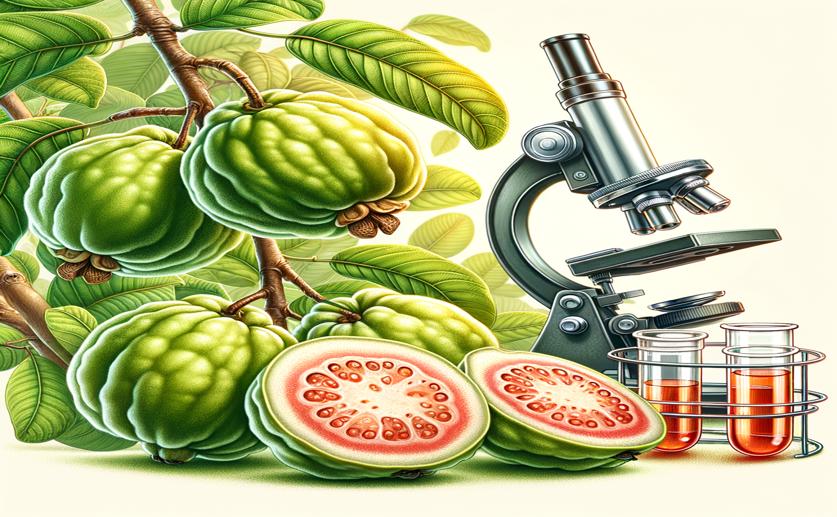
How Guava Extracts May Help Combat Fluconazole-Resistant Candida Infections
Jim Crocker
1st July, 2024

Image Source: Natural Science News, 2024
Key Findings
- Researchers at Saveetha University studied fluconazole-resistant Candida albicans from root caries specimens
- They found that 65% of the samples contained C. albicans, with two strains resistant to fluconazole
- Psidium guajava (guava) extract showed promising antifungal activity against these resistant strains
References
Main Study
1) Computational Evaluation on the Interactions of an Opaque-Phase ABC Transporter Associated with Fluconazole Resistance in Candida albicans, by the Psidium guajava Bio-Active Compounds.
Published 30th June, 2024
https://doi.org/10.3831/KPI.2024.27.2.91
Related Studies
2) Candidiasis and Mechanisms of Antifungal Resistance.
3) The 'obligate diploid' Candida albicans forms mating-competent haploids.
4) Functional biomes beyond the bacteriome in the oral ecosystem.



 26th April, 2024 | Jim Crocker
26th April, 2024 | Jim Crocker